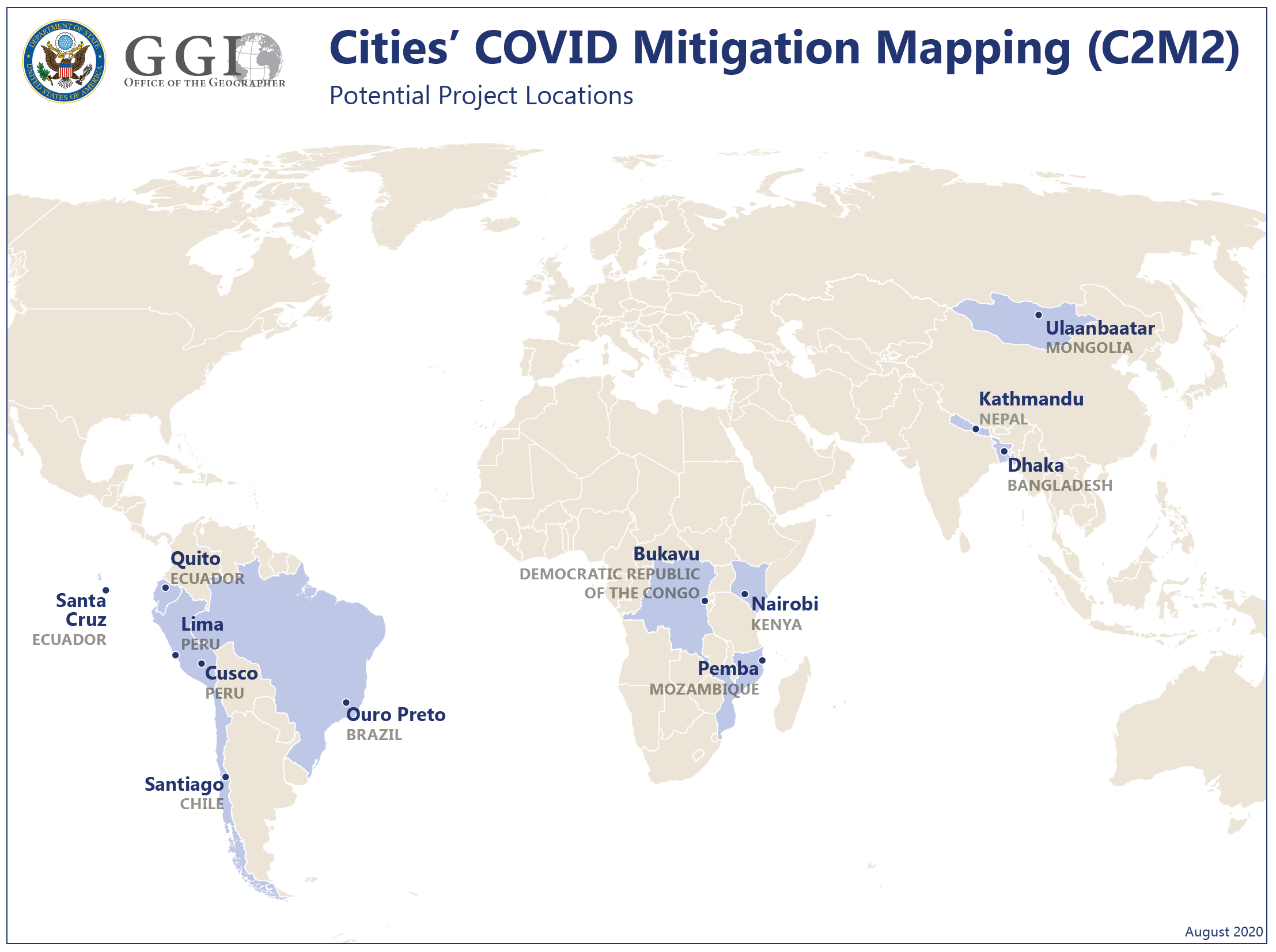Loading component...
Investigating which relief efforts mitigate the negative effects of the pandemic is at the forefront of a newly launched program led by the U.S. Department of State. The program, titled “Cities’ COVID Mitigation Mapping (C2M2): Second-order impacts of a global pandemic,” is supported by the Humanitarian Information unit of the Office of the Geographer and Global Issues, also known as GGI, which is part of the U.S. Bureau of Intelligence and Research.
One of the investigators on the project is Robert Richardson, MSU professor in the Department of Community Sustainability, who was recently selected as a Jefferson Science Fellow for 2020-2021 cohort.The Jefferson Science Fellows Program is designed to further build capacity for science, technology and engineering expertise within the U.S. Department of State and U.S. Agency for International Development. Faculty from U.S. universities spend a year away from their home institutions to serve as science advisers on foreign policy and international development issues.
C2M2 seeks to investigate the second-order, or indirect, impacts of COVID-19 to reduce development backsliding and, ultimately, prevent instability among vulnerable populations in urban areas around the world.
Members of the GGI staff collaborate with the American Association of Geographers and three global hub leads from the three focal regions: Africa, Asia and Latin America. Each of the three hubs has specific city-based projects that focus on indirect impacts of COVID, such as economic effects, food security, education and access to health care services, among others.
As a part of this work, Richardson will collaborate with the team to create partnerships to make local digital map data through open participatory and remote technologies, documenting key community resources and underlying infrastructure that are important to mitigate COVID-19 impacts. With these data they will conduct analyses to identify needs and distribution of resources and infrastructure.
This will help the U.S. Department of State address the identified indirect impacts of COVID-19 and facilitate production of digital maps and other datasets for government and others developing plans to mitigate COVID-19 second order effects.

